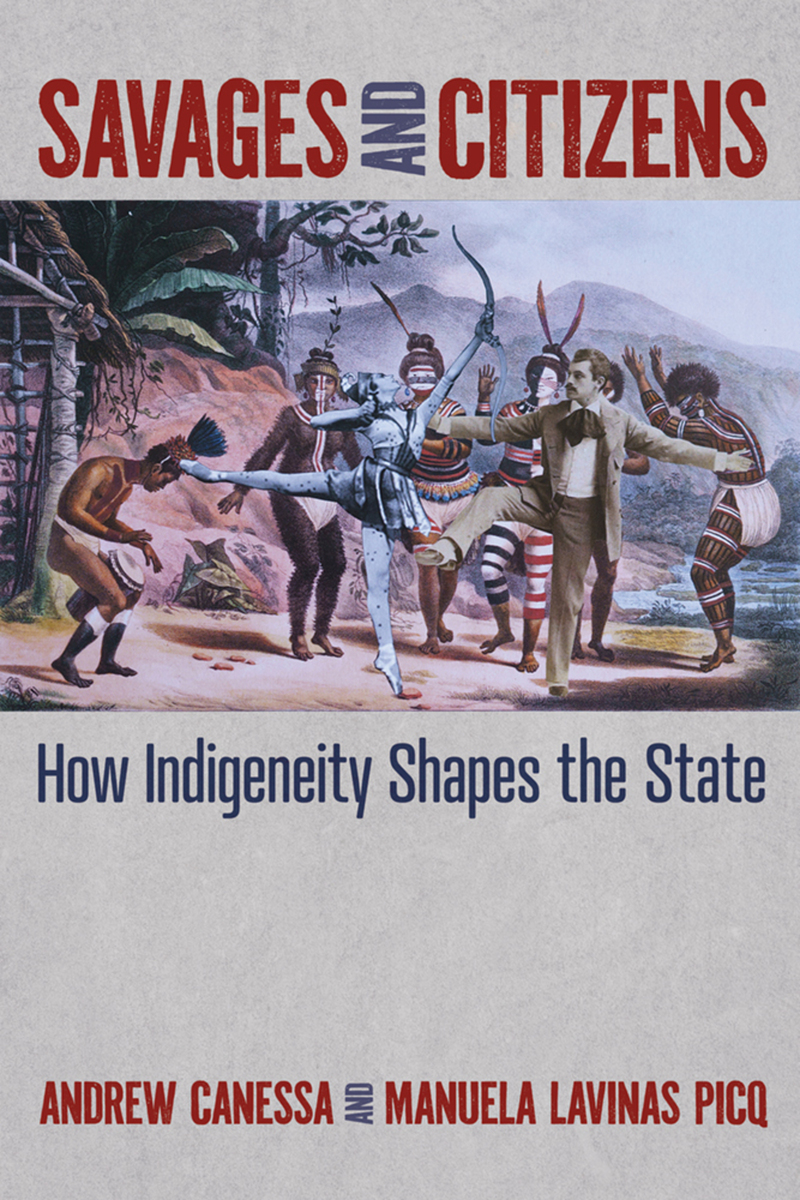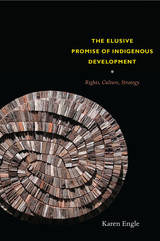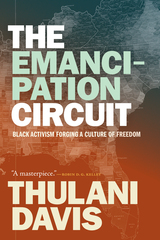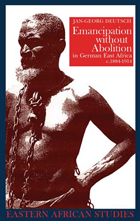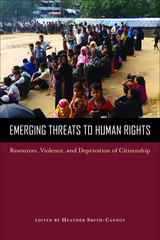Savages and Citizens: How Indigeneity Shapes the State
University of Arizona Press, 2024
eISBN: 978-0-8165-5397-6 | Cloth: 978-0-8165-5396-9
See other books on: Canessa, Andrew | Citizens | Indigenous Studies | Picq, Manuela Lavinas | Savages
See other titles from University of Arizona Press
eISBN: 978-0-8165-5397-6 | Cloth: 978-0-8165-5396-9
ABOUT THIS BOOK | AUTHOR BIOGRAPHY | REVIEWS
ABOUT THIS BOOK
Although Indigenous peoples are often perceived as standing outside political modernity, Savages and Citizens takes the provocative view that Indigenous people have been fundamental to how contemporary state sovereignty was imagined, theorized, and practiced.
Delving into European political philosophy, comparative politics, and contemporary international law, the book shows how the concept of indigeneity has shaped the development of the modern state. The exclusion of Indigenous peoples was not a collateral byproduct but political project in which they served as modernity’s indispensable looking glass. The book argues that indigeneity is a political identity relational to modern nation-states and that Indigenous politics, although marking the boundary of the state, are co-constitutive of colonial processes of state-making. In showing how indigeneity is central to how the international system of states operates, the book forefronts Indigenous peoples as political actors to reject essentializing views that reduce them to cultural “survivors” rooted in the past.
With insights drawn from diverse global contexts and empirical research from Bolivia and Ecuador, this work advocates for the relevance of Indigenous studies within political science and argues for an ethnography of sovereignty in anthropology. Savages and Citizens makes a compelling case for the centrality of Indigenous perspectives to understand the modern state from political theory to international studies.
Delving into European political philosophy, comparative politics, and contemporary international law, the book shows how the concept of indigeneity has shaped the development of the modern state. The exclusion of Indigenous peoples was not a collateral byproduct but political project in which they served as modernity’s indispensable looking glass. The book argues that indigeneity is a political identity relational to modern nation-states and that Indigenous politics, although marking the boundary of the state, are co-constitutive of colonial processes of state-making. In showing how indigeneity is central to how the international system of states operates, the book forefronts Indigenous peoples as political actors to reject essentializing views that reduce them to cultural “survivors” rooted in the past.
With insights drawn from diverse global contexts and empirical research from Bolivia and Ecuador, this work advocates for the relevance of Indigenous studies within political science and argues for an ethnography of sovereignty in anthropology. Savages and Citizens makes a compelling case for the centrality of Indigenous perspectives to understand the modern state from political theory to international studies.
See other books on: Canessa, Andrew | Citizens | Indigenous Studies | Picq, Manuela Lavinas | Savages
See other titles from University of Arizona Press
